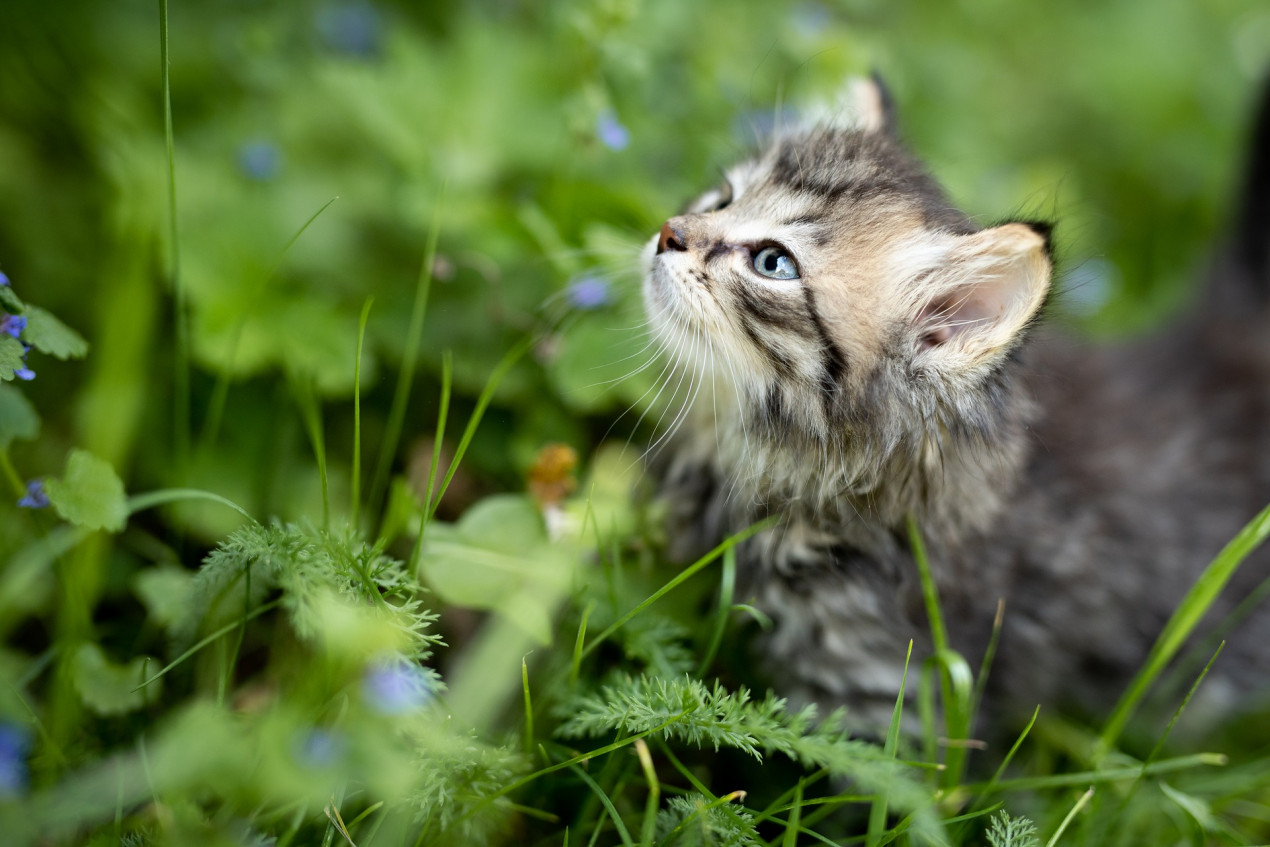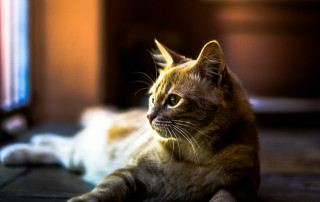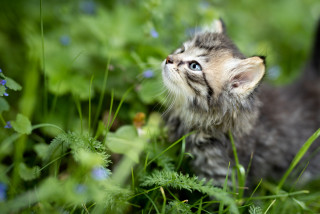
What are the biggest hazards for cats over springtime?
Springtime normally brings an increased number of cases to our out-of-hours clinics. Lighter nights and a rise in pets going out and about mean they are more likely to encounter potential hazards. For example, our emergency vets tend to see more car accidents, cat fights, dog bites, allergic reactions and cases of grass foreign bodies.
We’ve drawn up a list of some of the main hazards to look out for.
If you’re worried your cat is sick or injured as a result of any of these, please contact your vet as soon as possible, or find your nearest Vets Now pet emergency clinic or Vets Now 24/7 hospital.
1. Easter eggs
Chocolate contains caffeine and the chemical theobromine, both of which are toxic to cats. Chocolate poisoning is a big source of pet emergencies so make sure you keep Easter eggs and any other chocolate products out of reach of your cat. Be aware which other human foods are dangerous to cats, and make sure any house guests know the rules too.
If you are having a springtime barbeque, make sure your cat is kept at a safe distance. Kebab skewers, alcohol and bones can be particularly dangerous.
2. Slug and snail pellets (metaldehyde)
The toxic compound in slug and snail pellets is called metaldehyde. Bear in mind that not all products contain this. However, eating small amounts can cause significant poisoning. Signs will be seen within an hour of ingestion and include incoordination, muscle spasms, twitching, tremors, seizures and even death if left untreated. Your cat will need urgent veterinary treatment if affected.
3. Plants and flowers
Cats love spending time in the garden. Make sure your garden is safe for your cat and be careful if you need to use any slug and snail pellets, pesticides or other chemicals. Avoid using cocoa shell mulch as well, as it contains theobromine, the same toxic ingredient as chocolate.
Watch out, too, for poisonous plants. Toxic species common at this time of year include lilies, daffodils and azaleas. If you notice any signs of poisoning such as drooling, vomiting, diarrhoea, appearing ‘drunk’ or even collapsing, contact your vet immediately.

Handpicked related content:
4. Allergies
Just like people, cats and dogs can develop allergies to plants, pollens, grasses, and many other substances in springtime. Allergies in pets normally appear as itchy skin and ear problems, accompanied by hair loss or inflamed skin. Some pets will even change their behaviour due to irritation. Some will suffer respiratory signs or runny eyes.
5. Grass blades
This is another surprisingly big cause of pet emergencies. Cats who have a penchant for eating long grass or decorative grasses run the risk of getting the blades stuck in their nose and throat. This can cause breathing problems, coughing, sneezing, loss of appetite and nasal discharge.
6. Insect stings
Cats often like to chase and play with wasps and bees and can be stung. Most of these cases are not emergencies. With a bee sting, check and remove the sting if it’s still in place, then bathe the area in bicarbonate of soda (one teaspoon of bicarbonate of soda to 300ml warm water). With wasp stings bathe the area with malt vinegar or lemon juice.
If your cat is stung in or near the mouth or neck then you may need to seek veterinary help. Cats, like humans, can be allergic or become allergic to stings. Signs include swellings, distress and breathing difficulties.
Make sure your cat is up-to-date with his vaccinations, flea and tick medications as this is the time of year fleas and ticks start to increase in number.

7. Neutering
Springtime is when female un-neutered cats will start coming into season, so it’s essential to get them speyed now if you do not want three to four litters of kittens this year.
8. Adders
Adders are most likely to bite in spring when they’ve just come out of hibernation. This is because they’re not alert enough to scuttle away at speed. Their venom is highly dangerous to cats. If you suspect your cat has been bitten by an adder seek urgent veterinary treatment.
9. Permethrin (insecticides)
Permethrin is an insecticide commonly found in many over-the-counter ‘spot-on’ flea treatments for dogs. It is very toxic to cats and at Vets Now we see cases of permethrin poisoning every month. Most cats are poisoned when their owners mistakenly use a dog product on them.
However, cats can also show mild signs of poisoning after close contact with a recently treated dog. Signs of insecticide poisoning include drooling, tremors, twitching and seizures the onset of those symptoms is usually rapid. You should contact your vet immediately if you think your cat has been poisoned by insecticides. Cats that receive immediate treatment and survive usually suffer no long-term effects.
